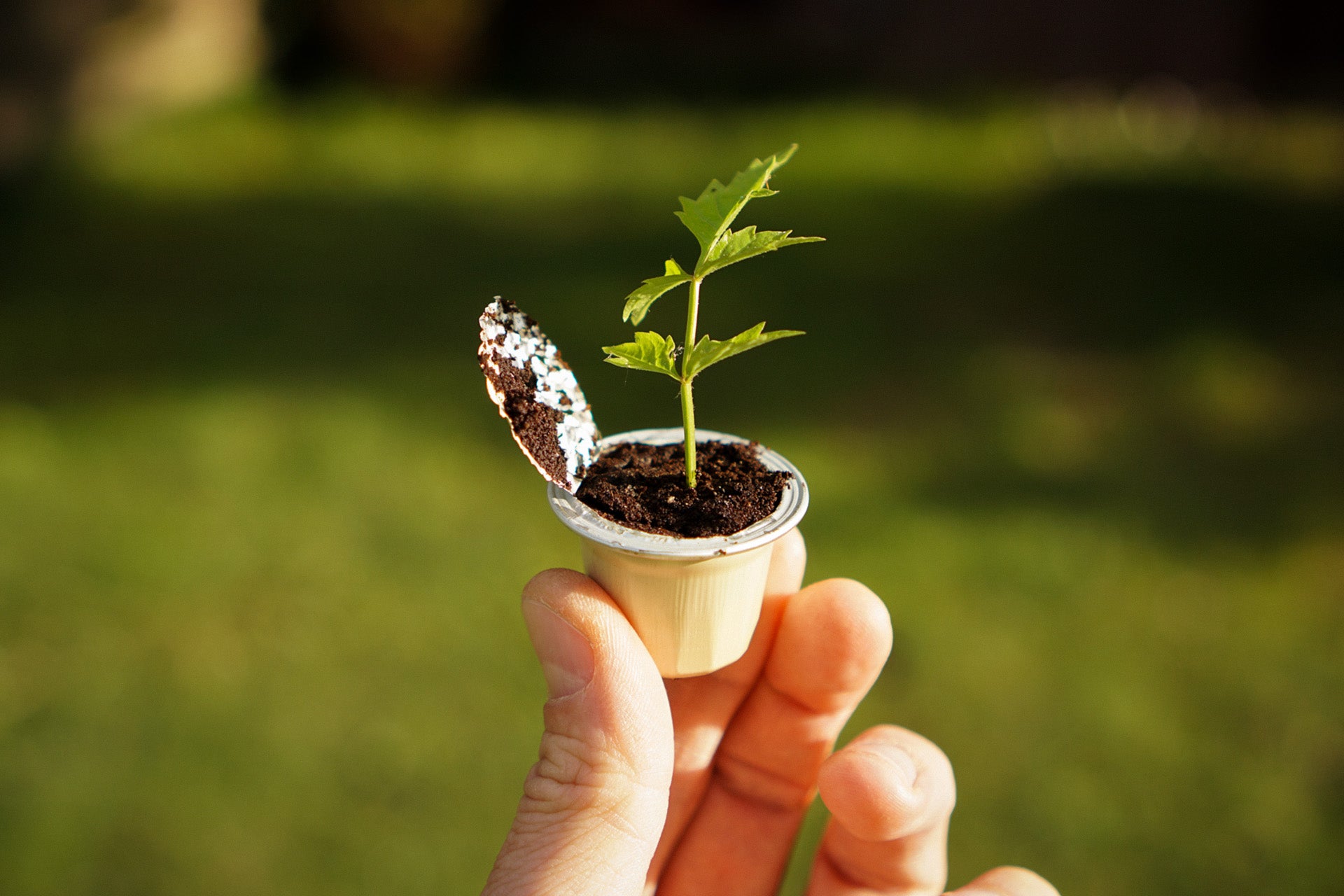Let's start at the beginning: coffee in itself is a luxury product that is not really environmentally friendly. Coffee is grown many thousands of kilometers from us, processed (sometimes using a lot of drinking water), brought across the ocean, transported to the roaster, roasted with a lot of energy, packaged, and then the ground coffee somehow becomes a drink. Are coffee capsules good or bad?
The shocking short answer: one of the least harmful of our coffee drinking habits is the capsule. Does it sound weird? Think about it: our capsules are made of aluminum, which means they are 100% recyclable an unlimited number of times. Making coffee requires minimal energy, the machine only runs for a few seconds (no need to heat it up, no need to light the gas, etc.). The capsules are "adjusted", you don't need to adjust the grinder, you always get the same coffee, you don't need to prepare it again, you use much less coffee.

If we look at the entire life cycle of our coffee, the two largest parts of the ecological footprint are the cultivation of the coffee and the preparation of the drink.
Since there is significantly less coffee in a capsule than in an espresso or a filter (Samurai Shoelace capsules are filled with 5.3-5.9 grams, and an automatic coffee machine's espresso is made from 9-12 grams), the first "profit" can already be seen. The second is coffee making. The energy used to prepare a coffee made with a coffee maker can be up to 10 times that of "boiling" a capsule!
So capsule coffees reduce the two largest parts of the ecological footprint to a fraction!
The main problem is not the principle, but our own laziness, unfortunately. The aluminum capsules we use are 100% reusable, unlimited times. (The alloy can be made into a capsule again and again, using a fraction of the energy required for the original production). We also have a solution for that:
So instant coffee is the most environmentally friendly, followed by capsules!
Taking the above into account, filter coffee is the most polluting (in terms of coffee's ENTIRE life cycle), which is only "slightly" worse than espresso.
So it's always worth looking at the whole picture, and we can't emphasize enough that you select and don't throw the used capsule in the trash, because the pomace inside is a valuable nutrient for plants, and aluminum is a valuable raw material for the production of new capsules! Click here and see our recycling!

